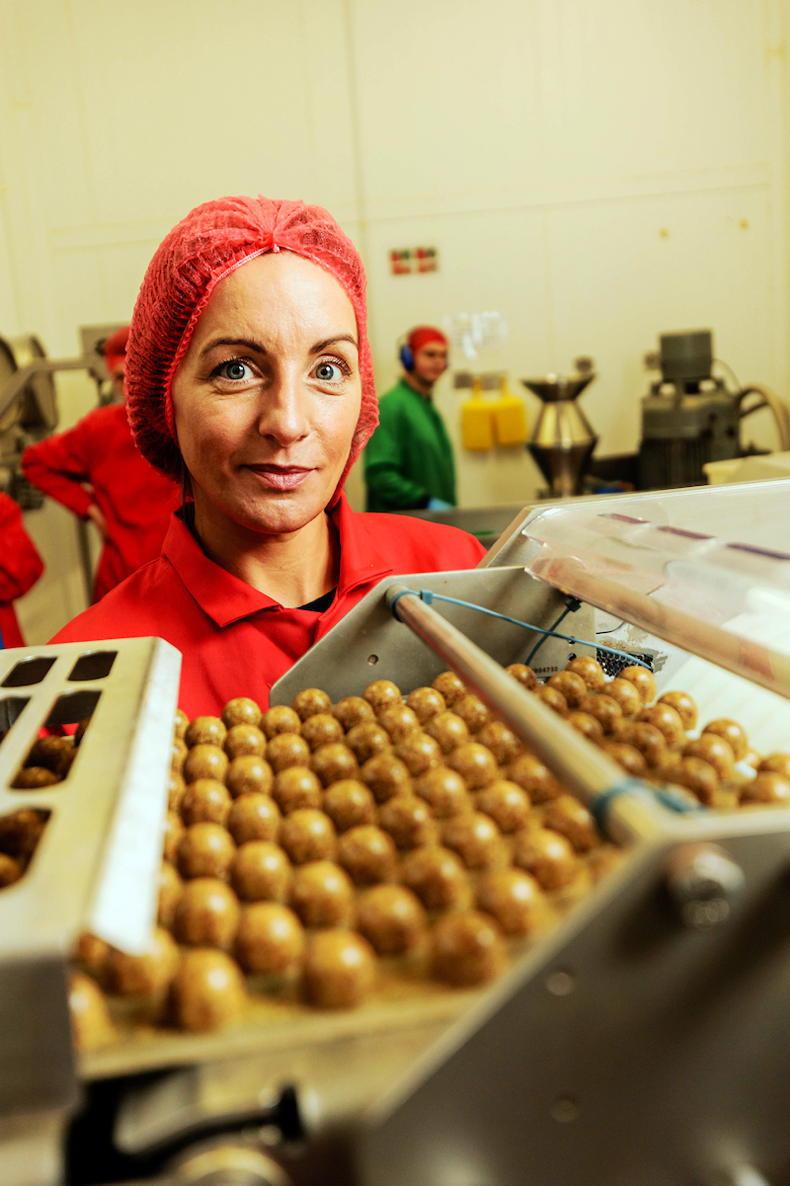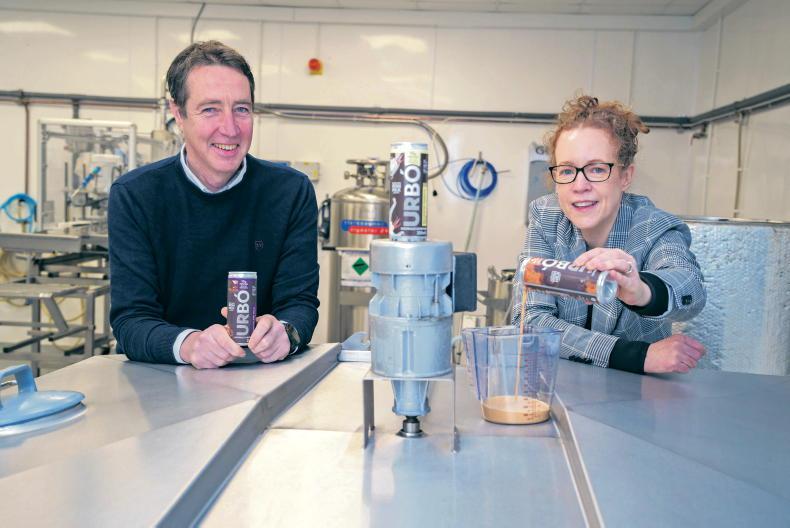The health and wellness landscape is ever-changing and can be a confusing area to navigate; particularly for those just beginning to make changes to their lifestyle. Even the terminology around fitness and diet can be daunting.
For example, the word “macros” gets thrown around a lot – but what does it mean? Macros, short for “macronutrients”, are a way to categorise the types of nutrients we consume on a daily basis. Generally, they are broken down into three groups: proteins, carbohydrates and fats.
All three macros are important to maintain a healthy lifestyle – we need carbohydrates for energy, healthy fats for vitamin absorption and protein to help repair and build muscle tissue. But if your ratios are off, this might be indicative of a diet which needs some adjustment. It’s all about balance.
In recent times, protein has become the shining star of the macronutrients, especially when it comes to weight loss goals. Studies have shown that diets with the right amount of protein (around 30% of daily caloric intake) leave individuals feeling fuller and more satisfied; less likely to snack and with a higher likelihood of maintaining weight loss in the long term.
This has led to an increase in convenient, high-protein snacks on supermarket shelves, including protein bars, protein balls and protein drinks. Seeing these products on shelf can lead one to wonder if this whole protein thing is just a fad, or if it is a genuine move in the right direction.
Protein-I
To find out, Irish Country Living spoke with Professor Lorraine Brennan, who is head of human nutrition in University College Dublin’s (UCD) School of Agriculture and Food Science.
Lorraine is heavily involved in a multi-disciplinary research project called Protein-I, which is examining ways of increasing consumption of plant-based proteins while maintaining healthy levels of iron and Vitamin B12.
She says there is a marked difference between ensuring adequate protein intake and a fad diet, like the Atkins Diet of yesteryear or the more current “carnivore” diet – both of which focus on increasing fat and protein intake while reducing carbohydrates.
“Fad diets often claim to produce benefits quickly and usually lack sound scientific evidence,” she explains. “Being aware of where you are getting protein from, and paying attention to having a diverse range of protein intake in the diet, is important.”
While Lorraine emphasises the importance of adequate protein, she also says the most recent data from the National Nutrition Adult Survey shows average intakes of protein among Irish adults is in line with recommendations.
Being aware of where you are getting protein from, and paying attention to having a diverse range of protein intake in the diet, is important
“However, we do know that older people [in particular] need to pay attention to whether they are getting enough protein in their diet,” she says. “Changing protein intake and diversifying it should be considered, as part of an overall healthy diet and lifestyle.
"Protein helps your body repair and make new cells [and they are] also enzymes that support many functions in the body, such as digestion and energy production.”
The Protein-I project looks at the entire value chain system of potential plant-based proteins, from the crops being planted to the end product and said nutrition of that product. This is in line with recommendations to reduce reliance on animal-based proteins to help achieve sustainability goals.
The project includes researchers from Queen’s University Belfast, Teagasc, University College Cork, University of Galway and Ulster University in addition to UCD. Initial results of the project are due to be released this spring.
Irish dairy protein
Exploring plant-based protein potential is important as a way of diversifying our future diets, but no one is attempting to replace Irish meat or dairy entirely. Our grass-based system remains one of the most efficient in the world; resulting in nutrient-rich meat and dairy products.
Co Meath dairy farmer Pat Farrelly saw first-hand the demand for sugary “energy” drinks when collecting his children from sporting events. This led him to develop a healthier alternative: an Irish dairy-based protein drink called URBÓ (urbomilk.com).
“The kids would be all about the energy drinks – full of sugar and limited nutrition,” he tells Irish Country Living. “I knew we could do better.”
Pat is no stranger to on-farm innovation and his cows are milked using a fully robotic milking system. With URBÓ, Pat wanted to take the milk produced on-farm, which is already naturally high in protein, direct to the consumer.
The product development process began in 2019; creating a lightly flavoured milk-based drink which is low in lactose, high in protein and fortified with vitamin D. The drink currently comes in chocolate, vanilla and coffee flavours with more to be launched in the coming months.
“We got into Food Works [the accelerator programme for scalable, innovative food and drink products organised by Bord Bia, Enterprise Ireland and Teagasc],” Pat explains. “They gave us a lot of assistance on how to make a business like this work. While it was difficult during the pandemic, I’m glad we stuck with it.
“It has worked out really well for us. We launched in shops in 2022 and, very quickly, we were in over 200 shops. It’s been quite a journey.”
Pat and his family-based team originally made URBÓ on the farm before moving to a dedicated production facility in nearby Trim, where the milk can be easily delivered. They add very little to the milk – just an enzyme (to help lower lactose levels) and natural flavour before putting it through a “retorting” process which makes the product shelf-stable.
“We looked at [products in] other countries and found flavoured milk drinks were a high sale product, especially with younger consumers who tend to drink it as a grab-and-go breakfast,” Pat says. “In Ireland, we’re already used to drinking milk. It’s not a ‘gym bunny’ high protein drink; it’s not exclusively for gym-users. It’s for everyone.”
Good4U
Across the country in Co Sligo, another family-focused start-up heavily features protein in their product line. Good4U was founded in 2004 with the idea of using natural ingredients to create convenient, tasty on-the-go snacks.
They now offer over 40 products in their line including their new protein bites, which come in a variety of flavours like salted caramel and cocoa orange – the latter flavour winning a Great Taste Award this past year.

Good4U's protein ball range was created with health and indulgence in mind.
Michelle Butler is a registered dietician and director of Good4U product development. She says developing a range of high protein snacks had been on their radar for some time.
“We envisioned a product that stood apart from the conventional protein bars dominating the market, most of which relied heavily on nuts and extensive ingredient lists. Instead, we aimed to bring something different. This became our goal: to create a product that felt indulgent without compromising on health or taste.”
Refining the recipe
All of Good4U’s products are developed in-house by their team of chefs, including Michelle herself. With her background in nutrition, keeping ingredients as simple and unrefined as possible is always their guiding ethos. She says they are proud of their product line, but they definitely ran into roadblocks along the way.
“From the outset, we faced significant challenges,” she says. “We were committed to a clean label product using only kitchen cupboard ingredients, avoiding artificial flavours, additives, and preservatives. Meeting shelf-life expectations was hard. Working with basic equipment in the early stages only added to the complexity.
“However, through continuous refinement of the recipe and investments in advanced technology over the past 10 years, we’ve reached a point where we’re proud of our product and the new flavours we’ve launched. Our protein balls are high in fibre, gluten and nut-free, contain 7g of protein and have no added sugar.”
Michelle says she understands people are conscious of consuming healthy amounts of protein but the protein snacks on offer are not always as healthy as they seem.
“In Ireland, the demand for high-protein snacks is growing, especially among aging women who are becoming more aware of the importance of protein for maintaining muscle mass, bone health, and overall vitality,” she explains.
“However, many protein bars on the market often mask poor-quality ingredients under the guise of high protein content.”
Good4U Protein Balls can be found
nationwide in Tesco and Dunnes Stores and can be purchased online (good4u.com).
Adequate protein intake is important to maintain a healthy diet; particularly for athletes and older people.There are many protein-focused products on shop shelves, but some are not as nutritious as they seem.There are some Irish alternatives which are minimally processed and use quality ingredients. Read more
Irish butchers need our support all year - not just during the festive season
'This is not the end of the Waterford story just yet'
The health and wellness landscape is ever-changing and can be a confusing area to navigate; particularly for those just beginning to make changes to their lifestyle. Even the terminology around fitness and diet can be daunting.
For example, the word “macros” gets thrown around a lot – but what does it mean? Macros, short for “macronutrients”, are a way to categorise the types of nutrients we consume on a daily basis. Generally, they are broken down into three groups: proteins, carbohydrates and fats.
All three macros are important to maintain a healthy lifestyle – we need carbohydrates for energy, healthy fats for vitamin absorption and protein to help repair and build muscle tissue. But if your ratios are off, this might be indicative of a diet which needs some adjustment. It’s all about balance.
In recent times, protein has become the shining star of the macronutrients, especially when it comes to weight loss goals. Studies have shown that diets with the right amount of protein (around 30% of daily caloric intake) leave individuals feeling fuller and more satisfied; less likely to snack and with a higher likelihood of maintaining weight loss in the long term.
This has led to an increase in convenient, high-protein snacks on supermarket shelves, including protein bars, protein balls and protein drinks. Seeing these products on shelf can lead one to wonder if this whole protein thing is just a fad, or if it is a genuine move in the right direction.
Protein-I
To find out, Irish Country Living spoke with Professor Lorraine Brennan, who is head of human nutrition in University College Dublin’s (UCD) School of Agriculture and Food Science.
Lorraine is heavily involved in a multi-disciplinary research project called Protein-I, which is examining ways of increasing consumption of plant-based proteins while maintaining healthy levels of iron and Vitamin B12.
She says there is a marked difference between ensuring adequate protein intake and a fad diet, like the Atkins Diet of yesteryear or the more current “carnivore” diet – both of which focus on increasing fat and protein intake while reducing carbohydrates.
“Fad diets often claim to produce benefits quickly and usually lack sound scientific evidence,” she explains. “Being aware of where you are getting protein from, and paying attention to having a diverse range of protein intake in the diet, is important.”
While Lorraine emphasises the importance of adequate protein, she also says the most recent data from the National Nutrition Adult Survey shows average intakes of protein among Irish adults is in line with recommendations.
Being aware of where you are getting protein from, and paying attention to having a diverse range of protein intake in the diet, is important
“However, we do know that older people [in particular] need to pay attention to whether they are getting enough protein in their diet,” she says. “Changing protein intake and diversifying it should be considered, as part of an overall healthy diet and lifestyle.
"Protein helps your body repair and make new cells [and they are] also enzymes that support many functions in the body, such as digestion and energy production.”
The Protein-I project looks at the entire value chain system of potential plant-based proteins, from the crops being planted to the end product and said nutrition of that product. This is in line with recommendations to reduce reliance on animal-based proteins to help achieve sustainability goals.
The project includes researchers from Queen’s University Belfast, Teagasc, University College Cork, University of Galway and Ulster University in addition to UCD. Initial results of the project are due to be released this spring.
Irish dairy protein
Exploring plant-based protein potential is important as a way of diversifying our future diets, but no one is attempting to replace Irish meat or dairy entirely. Our grass-based system remains one of the most efficient in the world; resulting in nutrient-rich meat and dairy products.
Co Meath dairy farmer Pat Farrelly saw first-hand the demand for sugary “energy” drinks when collecting his children from sporting events. This led him to develop a healthier alternative: an Irish dairy-based protein drink called URBÓ (urbomilk.com).
“The kids would be all about the energy drinks – full of sugar and limited nutrition,” he tells Irish Country Living. “I knew we could do better.”
Pat is no stranger to on-farm innovation and his cows are milked using a fully robotic milking system. With URBÓ, Pat wanted to take the milk produced on-farm, which is already naturally high in protein, direct to the consumer.
The product development process began in 2019; creating a lightly flavoured milk-based drink which is low in lactose, high in protein and fortified with vitamin D. The drink currently comes in chocolate, vanilla and coffee flavours with more to be launched in the coming months.
“We got into Food Works [the accelerator programme for scalable, innovative food and drink products organised by Bord Bia, Enterprise Ireland and Teagasc],” Pat explains. “They gave us a lot of assistance on how to make a business like this work. While it was difficult during the pandemic, I’m glad we stuck with it.
“It has worked out really well for us. We launched in shops in 2022 and, very quickly, we were in over 200 shops. It’s been quite a journey.”
Pat and his family-based team originally made URBÓ on the farm before moving to a dedicated production facility in nearby Trim, where the milk can be easily delivered. They add very little to the milk – just an enzyme (to help lower lactose levels) and natural flavour before putting it through a “retorting” process which makes the product shelf-stable.
“We looked at [products in] other countries and found flavoured milk drinks were a high sale product, especially with younger consumers who tend to drink it as a grab-and-go breakfast,” Pat says. “In Ireland, we’re already used to drinking milk. It’s not a ‘gym bunny’ high protein drink; it’s not exclusively for gym-users. It’s for everyone.”
Good4U
Across the country in Co Sligo, another family-focused start-up heavily features protein in their product line. Good4U was founded in 2004 with the idea of using natural ingredients to create convenient, tasty on-the-go snacks.
They now offer over 40 products in their line including their new protein bites, which come in a variety of flavours like salted caramel and cocoa orange – the latter flavour winning a Great Taste Award this past year.

Good4U's protein ball range was created with health and indulgence in mind.
Michelle Butler is a registered dietician and director of Good4U product development. She says developing a range of high protein snacks had been on their radar for some time.
“We envisioned a product that stood apart from the conventional protein bars dominating the market, most of which relied heavily on nuts and extensive ingredient lists. Instead, we aimed to bring something different. This became our goal: to create a product that felt indulgent without compromising on health or taste.”
Refining the recipe
All of Good4U’s products are developed in-house by their team of chefs, including Michelle herself. With her background in nutrition, keeping ingredients as simple and unrefined as possible is always their guiding ethos. She says they are proud of their product line, but they definitely ran into roadblocks along the way.
“From the outset, we faced significant challenges,” she says. “We were committed to a clean label product using only kitchen cupboard ingredients, avoiding artificial flavours, additives, and preservatives. Meeting shelf-life expectations was hard. Working with basic equipment in the early stages only added to the complexity.
“However, through continuous refinement of the recipe and investments in advanced technology over the past 10 years, we’ve reached a point where we’re proud of our product and the new flavours we’ve launched. Our protein balls are high in fibre, gluten and nut-free, contain 7g of protein and have no added sugar.”
Michelle says she understands people are conscious of consuming healthy amounts of protein but the protein snacks on offer are not always as healthy as they seem.
“In Ireland, the demand for high-protein snacks is growing, especially among aging women who are becoming more aware of the importance of protein for maintaining muscle mass, bone health, and overall vitality,” she explains.
“However, many protein bars on the market often mask poor-quality ingredients under the guise of high protein content.”
Good4U Protein Balls can be found
nationwide in Tesco and Dunnes Stores and can be purchased online (good4u.com).
Adequate protein intake is important to maintain a healthy diet; particularly for athletes and older people.There are many protein-focused products on shop shelves, but some are not as nutritious as they seem.There are some Irish alternatives which are minimally processed and use quality ingredients. Read more
Irish butchers need our support all year - not just during the festive season
'This is not the end of the Waterford story just yet'










SHARING OPTIONS